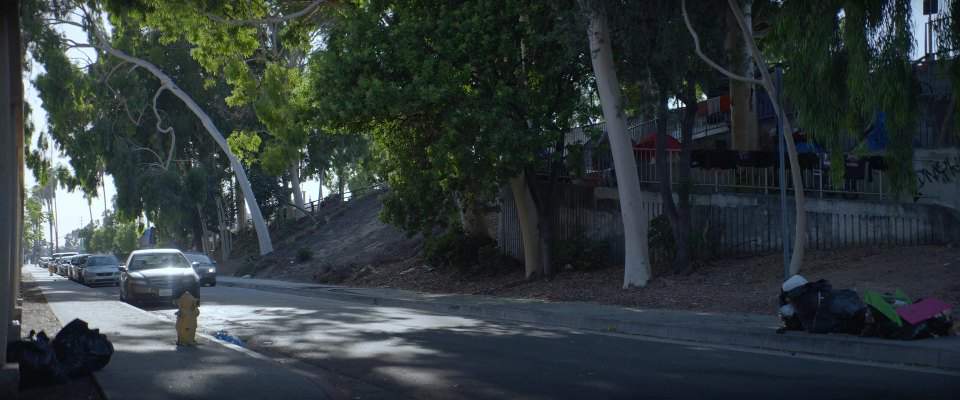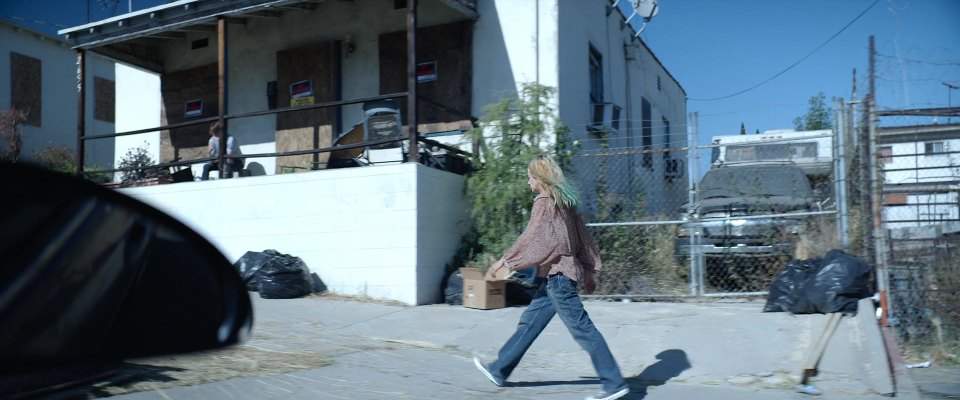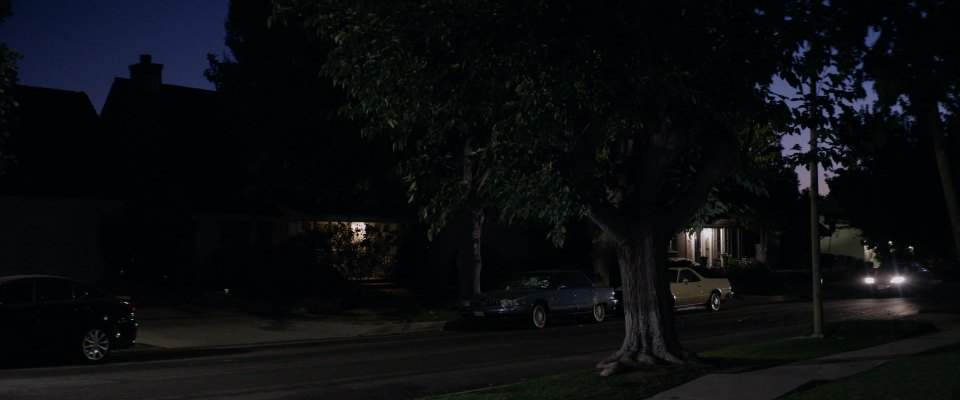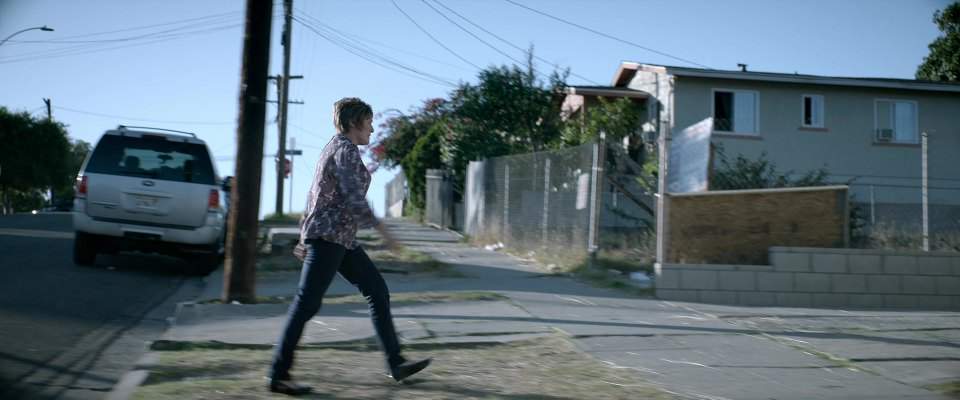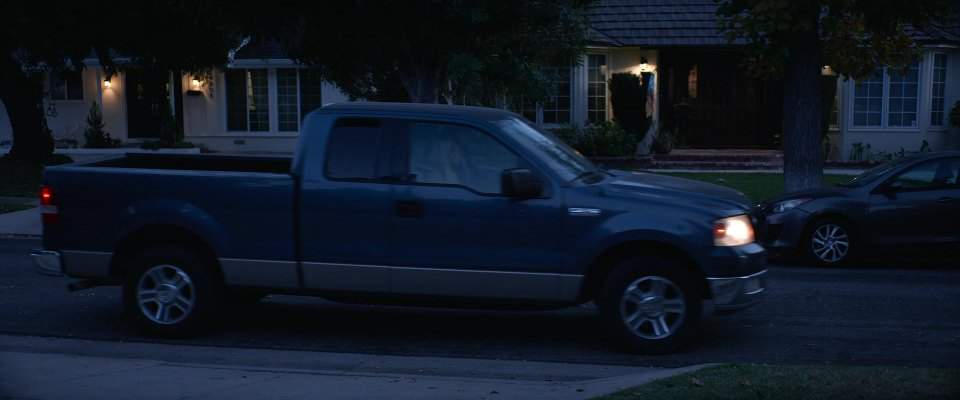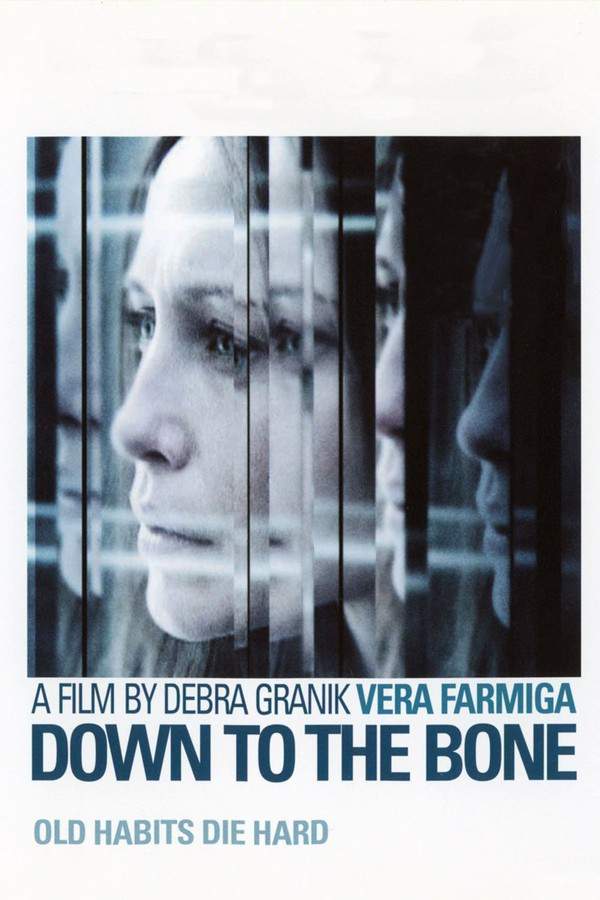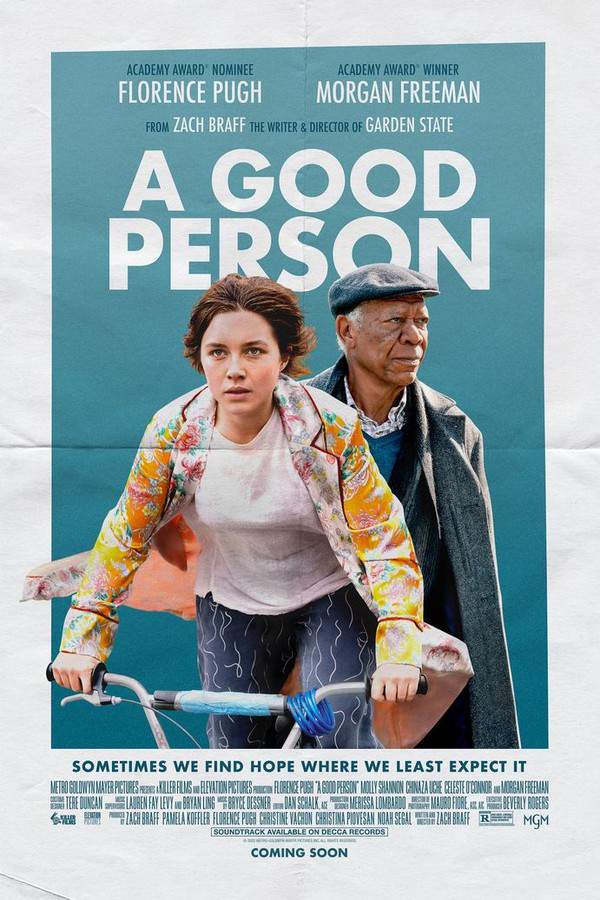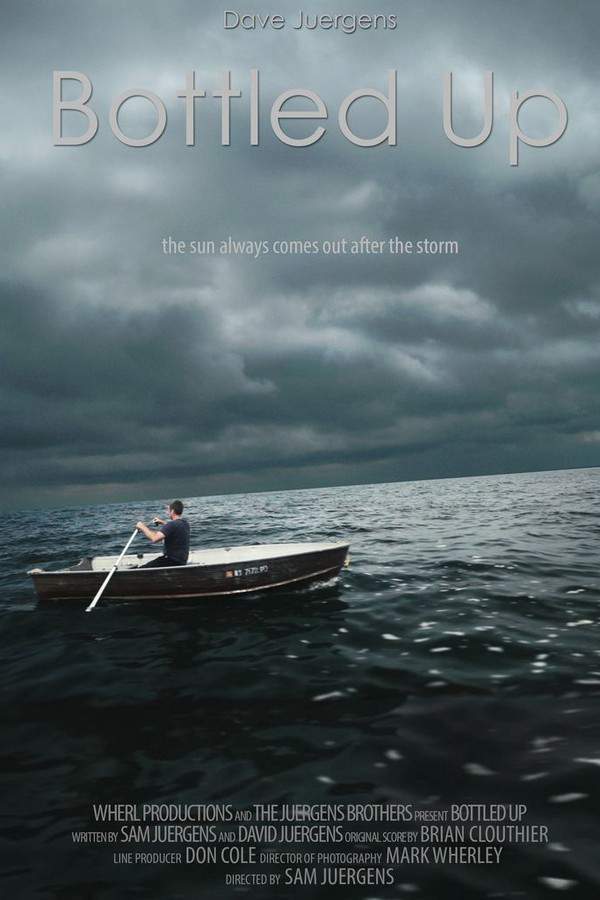Four Good Days 2021
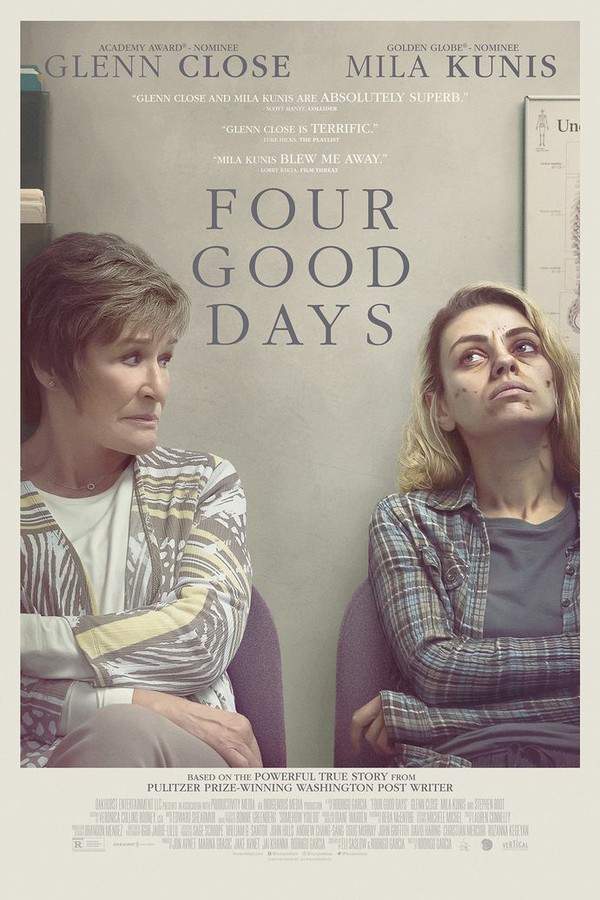
A woman battling addiction, Molly, seeks help from her estranged mother, Deb. As Molly desperately tries to find redemption, Deb is forced to confront her own painful past and the possibility of saving her daughter from the destructive cycle of heroin addiction. Their complicated relationship is tested as they face the harsh realities of recovery and the lasting impact of trauma.
Does Four Good Days have end credit scenes?
No!
Four Good Days does not have end credit scenes. You can leave when the credits roll.
Meet the Full Cast and Actors of Four Good Days
Explore the complete cast of Four Good Days, including both lead and supporting actors. Learn who plays each character, discover their past roles and achievements, and find out what makes this ensemble cast stand out in the world of film and television.
External Links and Streaming Options
Discover where to watch Four Good Days online, including streaming platforms, rental options, and official sources. Compare reviews, ratings, and in-depth movie information across sites like IMDb, TMDb, Wikipedia or Rotten Tomatoes.
Ratings and Reviews for Four Good Days
See how Four Good Days is rated across major platforms like IMDb, Metacritic, and TMDb. Compare audience scores and critic reviews to understand where Four Good Days stands among top-rated movies in its genre.

The Movie Echo Score
Four Good Days presents a compelling exploration of addiction marked by strong central performances and realistic visual elements. The film benefits from nuanced portrayals and an understated visual palette that immerses viewers in the emotional stakes, yet its plot often follows predictable beats and occasionally dips into indulgent melodrama. Pacing is measured but uneven, and the screenplay fails to fully capitalize on its thematic potential. Ultimately, this is a thoughtfully acted drama that engages through character work despite narrative limitations.
The Movie Echo Score Breakdown for Four Good Days

Art & Craft
In terms of visual craft, Four Good Days combines realistic direction with thoughtful production design, but it suffers from inconsistent editing. The understated color palette and careful costume and makeup choices lend authenticity to the period setting. However, occasional pacing issues in scene transitions hinder narrative flow. The overall visual approach supports the emotional realism even as technical execution remains uneven.

Character & Emotion
When it comes to character and emotion, the film shines through its lead performances and nuanced interactions. The central actors deliver raw, layered portrayals that convey the complexity of addiction and familial bonds. Subtle emotional beats and perceptive dialogue enhance character depth and authenticity. Overall, strong chemistry between the protagonists elevates the dramatic stakes, resulting in compelling emotional resonance throughout.

Story & Flow
In terms of story and flow, the narrative offers a clear depiction of the recovery journey, but it sometimes resorts to predictable developments. Measured pacing allows exploration of key emotional moments, yet the screenplay occasionally lacks focus and fails to delve deeper into pivotal events. Overall engagement is maintained through character-driven scenes, though originality and narrative cohesion are uneven across its runtime.

Sensory Experience
When evaluating the sensory experience, Four Good Days provides an unobtrusive soundtrack and subtle sound design that support the film’s tone. The visual style maintains consistency with an understated color scheme and period-appropriate set details. However, sound mixing occasionally lacks depth, and the absence of a distinctive musical identity limits immersion. Overall, the sensory elements complement the drama but rarely captivate independently.

Rewatch Factor
In terms of rewatch value, this drama benefits from memorable central performances that invite repeated viewings for character study. The emotional realism and relatable themes maintain interest on subsequent viewings, though the conventional narrative structure may reduce long-term novelty. Some viewers may revisit key scenes for the raw emotional beats, but overall the film’s appeal is tied primarily to its acting rather than enduring narrative surprises.

52
Metascore
5.4
User Score


54%
TOMATOMETER

81%
User Score

6.6 /10
IMDb Rating

68
%
User Score

3.1
From 43 fan ratings

4.00/5
From 3 fan ratings
Take the Ultimate Four Good Days Movie Quiz
Challenge your knowledge of Four Good Days with this fun and interactive movie quiz. Test yourself on key plot points, iconic characters, hidden details, and memorable moments to see how well you really know the film.
Four Good Days Quiz: Test your knowledge about the movie Four Good Days with this 10-question quiz.
What is Molly's nickname?
Deb
Ashley
Sammy
Molly
Show hint
Full Plot Summary and Ending Explained for Four Good Days
Read the complete plot summary of Four Good Days, including all major events, twists, and the full ending explained in detail. Explore key characters, themes, hidden meanings, and everything you need to understand the story from beginning to end.
As 31-year-old Margaret “Molly” Wheeler (a name that evokes happier memories of her past) makes her way back to her childhood home, a wave of nostalgia washes over her. After a year apart, Molly returns with a resolute determination to overcome her addiction, pleading with her mother, Deb, to allow her to stay for a few days before beginning her detox journey. Despite her maternal instincts, Deb finds herself torn, ultimately deciding against enabling Molly’s destructive behaviors, standing firm with the support of her husband, Chris.
As darkness descends, Molly is left to spend another night outdoors, yet her persistence tugs at Deb’s heartstrings, leading her to agree to take Molly to detox the following morning. Unbeknownst to Deb, this journey will expose the depth of Molly’s struggles with addiction—over ten years marred by substance abuse, the loss of custody of her children, and a staggering fifteen attempts at sobriety. After four days of detox, a potential lifeline appears in the form of an opioid antagonist; however, it comes with a strict stipulation: Molly must remain clean for an additional four days to receive her first dose, followed by regular monthly injections.
As Molly reintegrates into her old life, she must confront the harsh realities of her addiction, catalyzed by Deb’s heartfelt revelations. These confessions recount Molly’s dark past, leaving her grappling with profound regret and shame. Surprisingly, as the day progresses, a sense of cautious optimism begins to bloom within Deb, allowing her to hope for her daughter’s recovery.
On the second day of Molly’s return, she gets a precious opportunity to spend time with her children, thanks to her ex, Sean]( /actor/joshua-leonard). While initially uncertain, they share an emotional reunion, savoring every moment together. During a grocery trip, Deb and Molly unexpectedly meet Coach Miller, who invites Molly to speak to his class about the harsh realities of drug addiction. In the privacy of their home, Deb opens the door to her own troubled past, discussing her coerced marriage to Molly’s father, Dale, after becoming pregnant with Molly’s older sister, Ashley. This shocking revelation forces Molly to reassess her beliefs about her mother’s motivations and struggles, challenging years of preconceived notions.
On Molly’s third day back, she faces the students in Coach Miller’s class, pouring out her truth with honesty and vulnerability. Her raw confessions ignite a flicker of hope in Deb, who believes that this could be the moment Molly breaks free from her cycle of suffering. Shortly thereafter, Molly requests to visit Sammy, a friend battling similar demons. On their way, they unexpectedly run into Molly’s ex-boyfriend, Eric, who inadvertently discloses a devastating secret: Molly had once been pregnant but made the heart-wrenching choice to give the child up for adoption. That evening, a phone call from the detox center shatters Molly’s hopes as she learns she must endure another three days of waiting for her much-needed shot, adding to her inner turmoil.
Tensions escalate as Deb grows increasingly wary of Molly’s behavior, leading to heated arguments that culminate in Molly leaving Sean’s residence, exacerbating Deb’s worries. The following days dissolve into a battle of wills, with Deb inundating Molly with calls, only to be met with silence.
Finally, on Monday morning, Molly returns to the home, urging Deb to get ready for their detox appointment. Before they depart, she asks Deb for her urine, a request that confirms the worst fears—the dreaded relapse. Yet, despite this setback, Molly asserts her determination to reclaim her sobriety, and Deb reluctantly complies. Arriving at the detox facility, Molly receives the opioid antagonist shot; however, the residual drugs in her system trigger severe withdrawal symptoms, necessitating an emergency visit to the hospital.
Fast forward four months, and a revitalized Molly is now living with Deb, regularly reconnecting with her children and gearing up for her next shot as she continues her challenging journey toward recovery. The film culminates in a heartfelt tribute to the real-life mother-daughter duo who inspired this touching narrative: Amanda Wendler (Molly) and Libby Alexander (Deb).
Uncover the Details: Timeline, Characters, Themes, and Beyond!

Coming soon on iOS and Android
The Plot Explained Mobile App
From blockbusters to hidden gems — dive into movie stories anytime, anywhere. Save your favorites, discover plots faster, and never miss a twist again.
Sign up to be the first to know when we launch. Your email stays private — always.
Watch Trailers, Clips & Behind-the-Scenes for Four Good Days
Watch official trailers, exclusive clips, cast interviews, and behind-the-scenes footage from Four Good Days. Dive deeper into the making of the film, its standout moments, and key production insights.
Cars Featured in Four Good Days
Explore all cars featured in Four Good Days, including their makes, models, scenes they appear in, and their significance to the plot. A must-read for car enthusiasts and movie buffs alike.
Four Good Days Themes and Keywords
Discover the central themes, ideas, and keywords that define the movie’s story, tone, and message. Analyze the film’s deeper meanings, genre influences, and recurring concepts.
Four Good Days Other Names and Titles
Explore the various alternative titles, translations, and other names used for Four Good Days across different regions and languages. Understand how the film is marketed and recognized worldwide.
Similar Movies To Four Good Days You Should Know About
Browse a curated list of movies similar in genre, tone, characters, or story structure. Discover new titles like the one you're watching, perfect for fans of related plots, vibes, or cinematic styles.
Quick Links: Summary, Cast, Ratings, More

What's After the Movie?
Not sure whether to stay after the credits? Find out!
Explore Our Movie Platform
New Movie Releases (2026)
Famous Movie Actors
Top Film Production Studios
Movie Plot Summaries & Endings
Major Movie Awards & Winners
Best Concert Films & Music Documentaries
Movie Collections and Curated Lists
© 2026 What's After the Movie. All rights reserved.




















